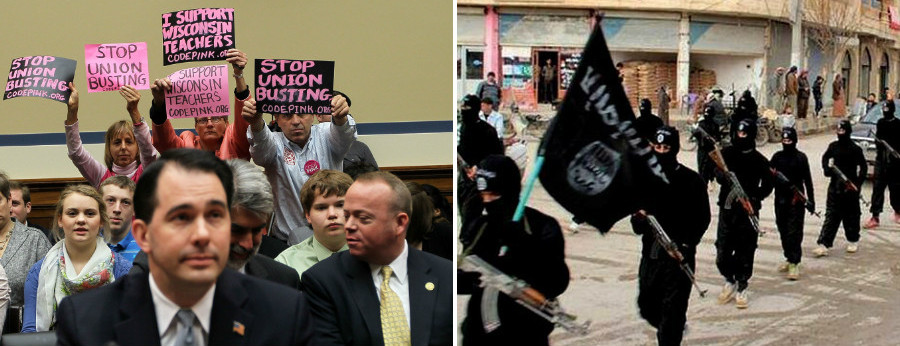TyroneSlothrop
Diamond Member
- Banned
- #641
Can you show some documentation that supports this rather global statement "They are going bankrupt because they are paying for a unionized work force that makes twice what the civilian workforce makes and retires much earlier."
Okay, here you go..
Why Illinois is Going Bankrupt TIME.com
Before I respond I am not opposed to reform of abuses ...I am opposed to simplistic and categorical attacks on the Unions as the sole and most important cause of all this ...the Pension funds invest in the Stock Market ...the Stock market nearly crashed ...did that affect anything ??
http://www.oecd-ilibrary.org/docser...est&checksum=56D861EC940B1FC4A62A4AD0E0041306
What happened? Pension funds were worth around $27 trillion in 2007 just before the crisis. Total world GDP at the time was $55 trillion according to the World Bank. Around half the funds’ investments were in the property market and corporate bonds and deposits. After rising steadily for the previous five years, stock markets collapsed in 2008, as did property markets, and the value of pension fund assets fell by $3.5 trillion. Not all values suffered. With stock markets panicking and fears that the whole system could implode, dull but dependable government bonds started to look like an attractive proposition. The world government bond index increased by around 7% over 2008. The overall figure for pension funds’ losses hides significant variations from one country and one fund to another, depending on the contents of their portfolios. Ireland, with a loss of nearly 38%, and Australia, with 27%, showed the worst investment performance in 2008. The United States, which accounts for around a half of all private-pension assets in OECD countries, showed the third largest decline: around 26%
......................................................
A Common-Sense Strategy for Fixing State Pension Problems in Tough Economic Times Center on Budget and Policy Priorities
Restoring underfunded state and local workers’ pension programs to full fiscal health is a long-term goal for state policymakers that should be accomplished with moderate, common-sense steps, rather than drastic measures that could imperil states’ economic recoveries.
Today’s pension shortfalls were caused in substantial part by the 2001 recession and the recent Great Recession. Those recessions reduced the value of assets in pension trust funds and made it difficult for some jurisdictions to find sufficient revenues to make required deposits into the trust funds. As a result, the average state pension fund is considered “underfunded,” meaning that there are not enough assets in the fund to pay 100 percent of the future retirement benefits that current state employees have earned, even taking into account the future investment earnings on those assets.




 you are a joke.
you are a joke.